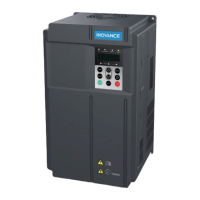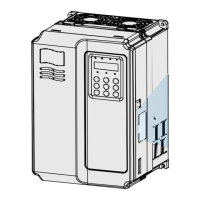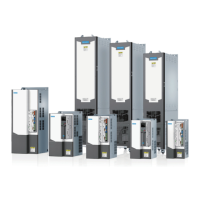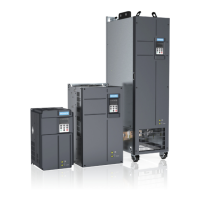Electrical Design
‑58‑
Table 3–3 Description of main circuit terminals
Mark
Name Function
R, S, T
Three‑phase power input
terminals
Used to connect to a three‑
phase AC input power supply
+, ‑
DC bus positive and negative
terminals
Common DC busbar input, used
to connect to an external
braking unit
U, V, W AC drive output terminals
Used to connect to a three‑
phase motor
Grounding (PE) terminal Used for protective grounding
3.3.2 Cable Selection
Power cable selection
Follow national or regional regulations when selecting power cables. Selection of IEC
cables is based on:
● EN 60204‑1 and IEC 60364‑5‑52 standards
● Copper conductor cable with PVC insulation or other insulation with higher heat
resistance
● Heat resistance: ambient temperature of ≤ 40ºC and cable surface temperature of
≤ 70ºC (Note: When the ambient temperature is above 40ºC or below the cable
rated minimum, contact Inovance.)
● Symmetrical cables with copper mesh shield
If recommended cables for peripheral devices or options are not suitable for the
product, contact Inovance.
As required by EMC standards, use shielded cables. A shielded cable has either three
or four phase conductors, as shown in the following figure. If a three‑conductor cable
is used but its shield cannot provide sufficient conductivity, add an independent PE
cable. Alternatively, use a four‑conductor cable containing a PE conductor. To
suppress radio frequency interference effectively, use coaxial copper braid as the
cable shield. To enhance the shielding efficiency and conductivity, ensure that the
braided density is greater than 90%.
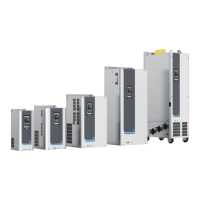
